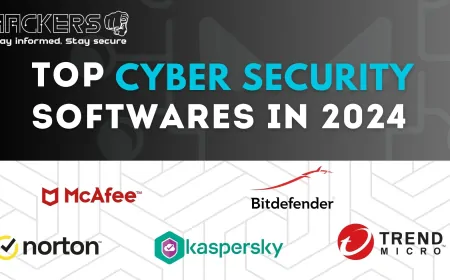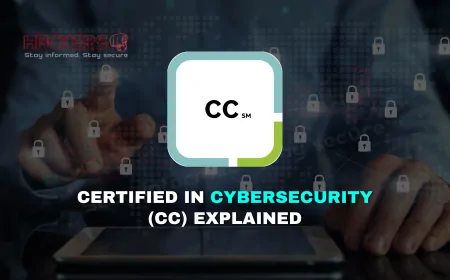Why RHCE Is Considered a “Gold Standard” for Linux Security Professionals
Picture yourself as a digital guardian, tasked with protecting the heart of a company’s IT infrastructure—its Linux servers—from relentless cyberattacks like ransomware and phishing. In 2025, Linux powers most of the world’s servers and cloud platforms, making it a prime target for hackers. The Red Hat Certified Engineer (RHCE) certification is widely regarded as a “gold standard” for Linux security professionals, equipping them with advanced skills to secure, automate, and manage enterprise systems. Building on the Red Hat Certified System Administrator (RHCSA), RHCE offers hands-on expertise that employers trust. In this blog, we’ll explore why RHCE holds this prestigious status, using clear language to help beginners and IT pros understand its value. Ready to unlock a top-tier cybersecurity career? Let’s dive in!

Table of Contents
- What is RHCE?
- Why Linux is Critical for Cybersecurity
- RHCE’s Advanced Security Skills
- Why RHCE is the Gold Standard
- RHCE vs. Other Security Certifications
- Real-World Applications of RHCE Skills
- Career Benefits of RHCE
- Why Choose Webasha for the Course
- Conclusion
- FAQs
What is RHCE?
The Red Hat Certified Engineer (RHCE) is an advanced certification from Red Hat, a global leader in open-source software. It builds on the Red Hat Certified System Administrator (RHCSA), which covers basic Linux administration, and focuses on complex skills like automation, networking, and security. Linux is an open-source operating system, meaning its code is freely customizable, making it a top choice for secure and scalable servers.
RHCE, tested through the EX294 exam, is a hands-on certification. You perform real tasks—like automating security policies or hardening services—on a live Red Hat Enterprise Linux (RHEL) system. It requires RHCSA or equivalent experience, targeting IT professionals ready for enterprise challenges. For a detailed overview, check this RHCE exam guide from Webasha.
In cybersecurity, RHCE is prized for its practical focus on securing Linux systems, which power over 70% of servers and most cloud platforms, making it a cornerstone for professionals.
Why Linux is Critical for Cybersecurity
Linux dominates the IT landscape, running most web servers, cloud platforms like AWS, and security tools like Kali Linux. Its flexibility and open-source nature make it ideal for enterprise systems, but also a prime target for cyberattacks. In 2025, threats like ransomware, phishing, and insider attacks exploit weak configurations, unpatched software, or open ports, making Linux security skills essential.
Securing Linux systems requires expertise in managing services, firewalls, and access controls. RHCE provides advanced skills to protect these systems, ensuring compliance with standards like GDPR or PCI-DSS, which is why it’s a gold standard for cybersecurity professionals.
RHCE’s Advanced Security Skills
RHCE equips professionals with cutting-edge skills to secure Linux environments:
- Ansible Automation: Automate security tasks, like deploying firewall rules or SELinux policies, across thousands of servers for consistent protection.
- Advanced SELinux: Customize Security-Enhanced Linux policies with
semanageto restrict processes, preventing exploits like privilege escalation. - Complex Firewalls: Configure
firewalldoriptablesfor precise traffic control, like restricting SSH access (e.g.,firewall-cmd --add-rich-rule='rule family="ipv4" source address="10.0.0.0/24" service name="ssh" accept'). - Secure Service Configuration: Harden services like Apache or SSH with TLS encryption or key-based authentication, reducing vulnerabilities.
- Container Security: Use
Podmanto isolate applications, containing breaches in cloud or server environments. - Log Analysis: Monitor logs with
journalctlorauditdto detect suspicious activity, like brute-force login attempts. - Network Monitoring: Use
ssornetstatto analyze connections, identifying unauthorized access.
These skills make RHCE holders experts in securing enterprise Linux systems, a key reason for its gold-standard status.
Why RHCE is the Gold Standard
RHCE earns its “gold standard” reputation for several compelling reasons:
- Hands-On Expertise: The EX294 exam tests real-world tasks, ensuring you can secure systems under pressure, unlike theoretical certifications.
- Linux Dominance: With Linux powering most servers and clouds, RHCE’s RHEL focus aligns with enterprise needs.
- Automation Mastery: Ansible skills allow rapid, consistent security across large-scale systems, critical for modern IT.
- Enterprise Security: Advanced skills like SELinux and complex firewalls meet strict compliance requirements, such as PCI-DSS.
- Global Credibility: Red Hat’s reputation ensures employers trust RHCE-certified professionals.
- Versatility: Skills apply to cloud platforms, DevSecOps, and cybersecurity operations, making RHCE holders adaptable.
These factors make RHCE a top choice for employers seeking Linux security experts. For real-world insights, see this RHCE success story.
RHCE vs. Other Security Certifications
How does RHCE compare to certifications like CISSP, CEH, or CompTIA Security+? Here’s a table:
| Aspect | RHCE | CISSP | CEH | CompTIA Security+ |
|---|---|---|---|---|
| Focus | Linux security, automation | Broad cybersecurity management | Ethical hacking, tools | General security fundamentals |
| Security Skills | Advanced: SELinux, firewalls, Ansible | Broad: policies, risk management | Moderate: hacking tools, exploits | Basic: network security, threats |
| Exam Style | Hands-on, performance-based | Multiple-choice | Multiple-choice | Multiple-choice |
| Prerequisites | RHCSA or equivalent | 5 years experience | Basic security knowledge | None, Network+ recommended |
| Best For | Linux security engineers | Security managers | Penetration testers | Beginner security roles |
RHCE’s Linux-specific, hands-on focus sets it apart, complementing broader or hacking-focused certifications. For foundational skills, see this RHCSA overview blog.
Real-World Applications of RHCE Skills
RHCE skills are applied in critical cybersecurity scenarios:
- Automating Security Policies: Use Ansible to deploy firewall rules or SELinux policies across servers, ensuring consistent protection.
- Hardening Web Servers: Secure Apache with SELinux and TLS, protecting cloud-hosted applications from attacks.
- Threat Detection: Monitor logs with
journalctl -u sshdto detect brute-force attempts, then block IPs withfirewalld. - Container Security: Deploy secure containers with
Podman, isolating apps to prevent breach escalation. - Network Security: Analyze traffic with
ssto identify suspicious connections, recommending firewall rules. - Compliance Assurance: Configure systems to meet GDPR or PCI-DSS, ensuring secure data handling.
These applications demonstrate RHCE’s practical value in securing enterprise systems. For career paths, check this Red Hat career guide.
Career Benefits of RHCE
RHCE offers significant advantages for Linux security professionals:
- High Salaries: Earn $100,000-$120,000 in the US or ₹8-20 LPA in India, reflecting RHCE’s expertise.
- Diverse Roles: Land jobs like Security Engineer, Cloud Security Specialist, or DevSecOps Engineer.
- Global Recognition: Red Hat’s reputation ensures worldwide credibility.
- Skill Versatility: Apply skills to servers, clouds, or DevSecOps pipelines.
- Career Growth: Progress to senior roles or Red Hat Certified Architect.
These benefits cement RHCE’s status as a gold standard. For exam tips, see this RHCE exam tips blog.
Why Choose Webasha for the Course
Mastering RHCE requires top-tier training, and Webasha Technologies delivers, especially in India. With years of experience training thousands, Webasha offers RHCE courses with hands-on labs that mirror the EX294 exam. Their expert instructors simplify complex topics like Ansible and SELinux, making them accessible for all.
Webasha provides flexible learning options—online, classroom, or bootcamps—along with affordable fees and job placement support. Their practical approach ensures you’re ready to secure Linux systems in enterprise settings. For prep strategies, check their RHCE exam tips blog. Webasha is your launchpad to becoming a Linux security pro.
Conclusion
RHCE earns its “gold standard” status for Linux security professionals by delivering advanced, hands-on skills to secure enterprise systems in 2025’s threat-filled landscape. With expertise in Ansible automation, SELinux, firewalls, and container security, RHCE holders are trusted to protect Linux servers and clouds from cyberattacks. Its practical focus, global credibility, and versatility set it apart from other certifications, making it a top choice for employers. Whether you’re advancing from RHCSA or aiming for a high-impact career, RHCE opens doors to success. Ready to become a Linux security expert? Enroll with Webasha and start your journey today!
FAQs
What is RHCE?
RHCE is an advanced certification focusing on Linux automation, networking, and security.
Why is RHCE called a gold standard?
Its hands-on, Linux-focused skills meet enterprise security needs.
Why is Linux critical for cybersecurity?
Linux powers most servers and clouds, making it a prime target for attacks.
What security skills does RHCE teach?
Ansible automation, SELinux, firewalls, secure services, and log analysis.
Does RHCE require RHCSA?
Yes, RHCSA or equivalent experience is needed.
Is the RHCE exam hands-on?
Yes, it tests real tasks like securing systems.
What is Ansible in RHCE?
An automation tool for deploying security policies across servers.
What is SELinux?
A security module restricting process actions to prevent exploits.
Can RHCE secure cloud systems?
Yes, it applies to Linux-based clouds like AWS.
What jobs can RHCE holders get?
Security Engineer, Cloud Security Specialist, DevSecOps Engineer.
What’s the salary for RHCE holders?
$100,000-$120,000 in the US, ₹8-20 LPA in India.
Does RHCE expire?
Yes, after three years; renew via exams or credits.
How does RHCE compare to CISSP?
RHCE is Linux-focused and practical; CISSP is broader, theoretical.
How does RHCE compare to CEH?
RHCE focuses on system security; CEH covers hacking techniques.
Can RHCE meet compliance standards?
Yes, it supports GDPR, PCI-DSS, and other regulations.
Is RHCE globally recognized?
Yes, Red Hat certifications are valued worldwide.
Which industries need RHCE skills?
Cloud, finance, healthcare, tech, and government.
Is RHCE beginner-friendly?
No, it’s advanced; start with RHCSA.
How long is RHCE training?
Typically 6-12 months after RHCSA.
Why choose Webasha for RHCE?
Webasha offers hands-on training, expert instructors, and job support.
What's Your Reaction?










































































